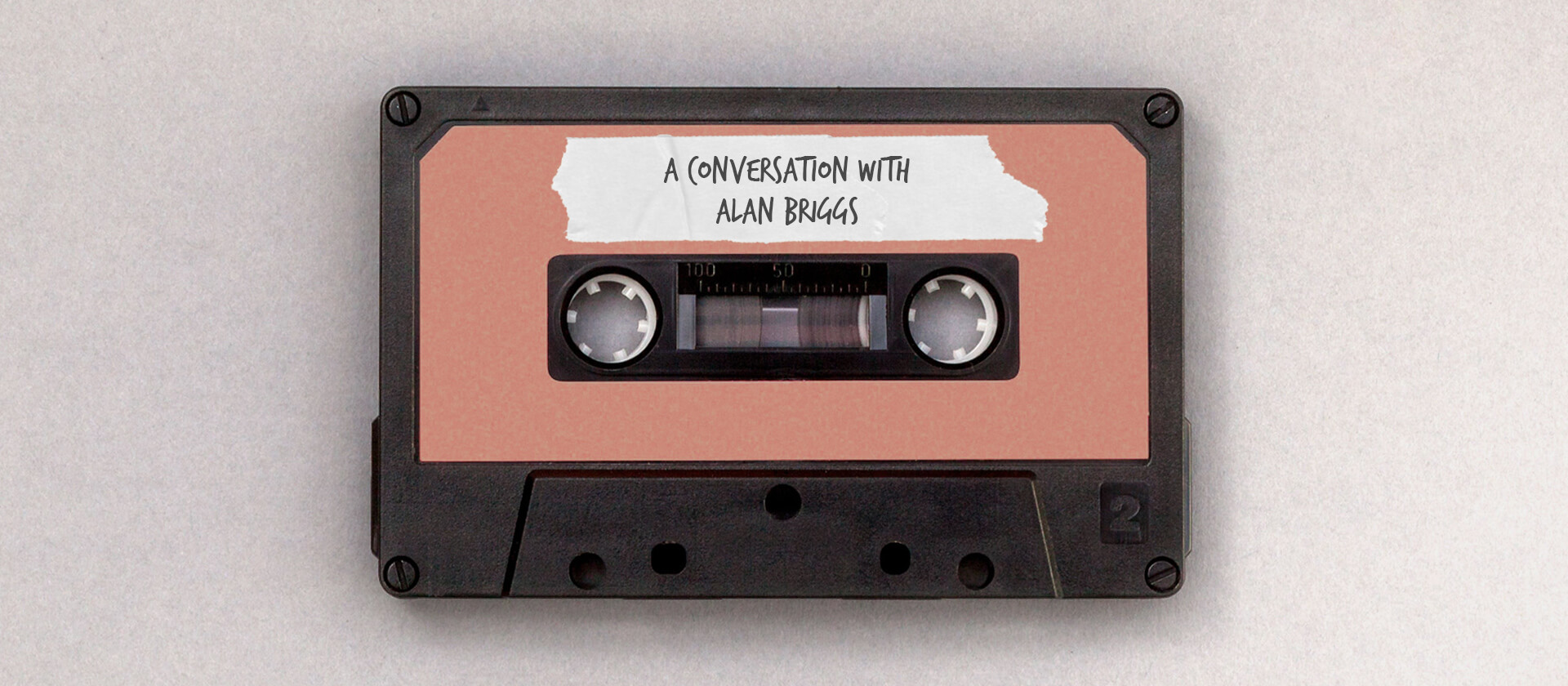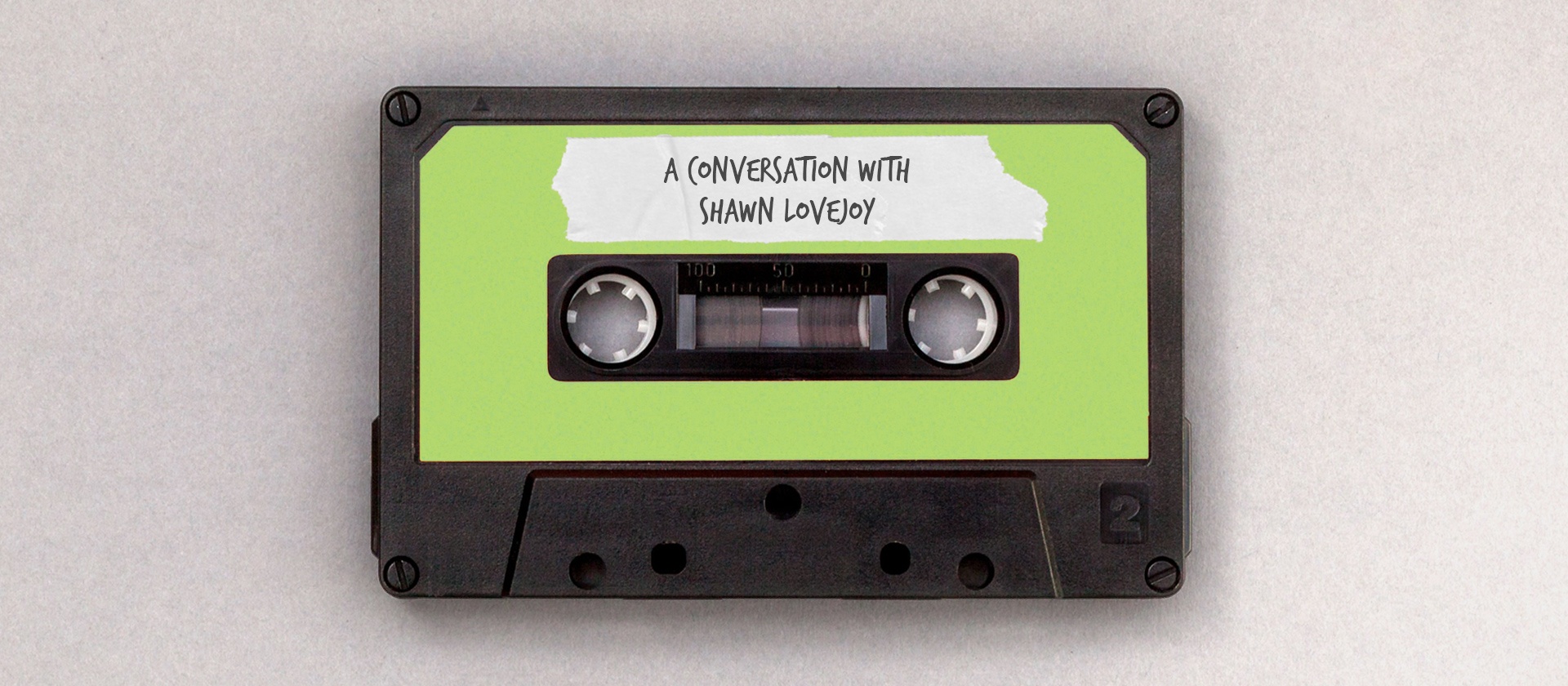Chris Mavity sits down with Brady Boyd, senior pastor at New Life Church in Colorado Springs to chat about his inspiration behind his new book "Addicted to Busy", gaining freedom from "business", and his idea of rythmic living.
Read the full audio transcript here:
Mavity: Thank you for joining us. It’s our pleasure to have Pastor Brady Boyd with us here today. Pastor of NewLife Church here in Colorado Springs actually. So, Brady thank you for taking the time to be with us today.
Boyd: Thanks Chris, it’s good to be with you
Mavity: Yeah, and I was in your office here gosh, I guess a few months ago and just as I was leaving you handed me a book, entitled “Addicted to Busy”. So we want to talk about that a little bit today. Say, what was your inspiration behind even writing that book?
Boyd: First off, all it was a great deal of personal pain, that came from realizing I was going too fast, that I could not slow down. That I had lost my ability in ministry and life to slow down. It was killing me, it was hurting me, it was. It almost cost me my marriage. It almost cost me everything in my life. So, a great deal of pain quite honestly is what caused me to write the book.
Mavity: I know you used the term addicted on purpose. How can I know if I’m addicted to busy?
Boyd: Yeah, just try to sit still and be quiet for 10 minutes and see how hard it is. Just focus on the Lord, try to do it for 10 minutes. One of the tale-tell signs of addiction is they can’t live their live without it. So, in our case, busyness has become an illness of our spirit. Where we simply cannot sit still. What I tell people is get to your office real early one day or go out somewhere and sit still for 10 minutes without talking, without looking at a digital screen, and just listen for the Lord’s voice in your life and try to do it for 10 minutes. It is insanely difficult for most of us to sit still to be reflective for 10 minutes.
The root of this issue is, for most pastors, if we’re busy we feel important. I mean, for example, pay attention next time when you have a conversation with another pastor and you say, “Hey how’s it going? What’s going on with your life? What’s really energizing your soul right now?” They are probably going through a long list of activities, things that they’re doing. Because it makes us feel important. You know if you asked someone how they’re doing and they said, “Well you know for a couple of days this week I really didn’t have a lot going on, it was just joyful to just relax. I’m not that busy, no one is calling me, I didn’t feel like I was in a big demand for anybodies time.” That doesn’t feel good to us. If we’re busy we feel important. Let me tell you another issue. If we slow down, Chris, if we truly slow down, we’re going to have to be honest with what’s really happening in our lives. Sometimes busyness is an excuse for us as pastors to ignore the real issues that are going on in our hearts, our marriages, our homes. And so if we just stay busy, we can almost medicate ourselves and keep ourselves from really focusing on the root issues, the core problems that are going on in our lives. And we all have them.
Mavity: How do you suggest that someone begins to gain freedom from the addiction to busyness?
Boyd: Well two things – get back to honoring the Sabbath is the first thing, and don’t confuse Sabbaths with vacations. A lot of pastors work is that Sabbaths and vacations are not the same thing. Like, I’m on vacation right now with my family and we’re having a lot of fun and I’m having some Sabbaths during my vacation but I don’t think my vacation is my Sabbath day.
Sabbaths happen regularly, Sabbaths happen weekly. I think we have to get back to the idea that Sabbaths are for rest. I wrote this down because I wanted to remember to tell you this. Here’s what I believe about Sabbaths, by choosing the Sabbath, in other words, choosing a day during the week, (it doesn’t have to be Sunday) by choosing the Sabbath I am protesting and rebelling against this innate desire that I have to trust and to worship my self-sufficiency. So it’s literally, Sabbath is a protest - I cannot do this on my own. I cannot do this by myself. So out of protest against my own self-sufficiency that I know I have and most of us have. This need to be self-sufficient. I am going to slow down. I’m going to be a son during that day, I’m not going to be a pastor, I’m not going to be a ministry leader, I’m not going to be whatever title you have. I’m gonna lay that aside and on the Sabbath day, I am the son. He is the Father, He is the potter, I am the clay, He is the father, I am His son, I’m going to get my identity back.
Sabbath to me is, I’ve been reading a book recently on Sabbath and the author says that on the seventh day when God gave us rest, that’s when He gave all of creation a soul. I think that’s true for all of us, it’s when we get our soul back. It’s when we get our identity back. It’s when we get our humanity back. For six days we work, we work, we strive, we strive, but on that seventh day is when we protest and rebel against this desire to be self-sufficient. That’s why Sabbaths - if pastors are not regularly taking the Sabbath and honoring the Sabbath and I mean defending it, defending that Sabbath day strongly, I think that’s the first step we have to take.
"...get back to honoring the Sabbath is the first thing, and don’t confuse Sabbaths with vacations..."
Mavity: Wow, I’ve never heard it put, not only that way, but not that strongly either. So I can tell there is a passion in your heart and in your soul. Can you unpack, I love your idea of rhythmic living that you have in the book. Can you just take a couple minutes and unpack that for us?
Boyd: Yeah, I love that the unforced rhythms of graces is The Message version of the Bible. I love that idea that Eugene Peterson gave us. You know, I don’t want to preach a sermon at anyone, but I know as pastors we love hearing passages of scriptures. So, Luke chapter five is the perfect illustration of rhythmic living. So, Luke five Jesus comes into the village. He comes into the village and He sees unbelievable opportunities for ministry. And it says that in the verse fifteen and sixteen. The news spread about Him all the more and crowds of people came to hear him and be healed of their sicknesses. That’s a big deal for pastors. We all understand the euphoria and endorphins that are released when we get to stand in front of crowd of people and do good work of preach the gospel. Good things are happening. Crowds of people are showing up, but then verse sixteen says Jesus often withdrew to lonely places and prayed.
In the middle of these busy seasons where crowds of people are showing up, they’re sick. They need healing. The demands of ministry are pressing on Jesus. But in verse sixteen it says he often withdrew to lonely places and prayed. and I think this is a problem for most of us. We don’t often withdraw. We are more concerned about the crowds than we are about our own souls sometimes, and I think we have to have a balance. I am no good to NewLife Church where I pastor if I am not taking care of my own soul. I am at my best when I’m standing in front of them, when I have cared for my own condition. Jesus shows us this. And then verse seventeen it says he comes back and it says in verse seventeen it says he comes back to the very village he had just left. He often withdrew to lonely places and prayed and it says in verse seventeen and the power of the Lord was present for him to heal the sick.
So, the very need that he saw in verse fifteen, He comes into this village and tons of people were sick. In sixteen, He often withdrew to lonely places and prayed. Verse seventeen he had power available to heal the very sick people that were in front of him. Here’s what I tell pastors all the time. I am not forsaking my responsibilities when I rest. It is for the sake of my responsibilities that I rest. And I want to say that one more time-we are not forsaking our responsibilities when we rest. It is for the sake of our churches, it is for the sake of the ministry that God’s called us to, that we choose to rest, so that when we’re brought back into that ministry, we are working from a full cup and not an empty cup.
This is what I believe. I believe when God is present in our rest, when we withdraw to God to rest, He becomes more present in our work. He becomes more powerful in our work when we choose to rest.
"One of the tale-tell signs of addiction is they can’t live their live without it. So, in our case, busyness has become an illness of our spirit."
Mavity: Yeah, I think that’s really well stated. Brady, do you have any, like, role models? Or where are some areas we can get some more input and information on this so that we as pastors and church leaders can become healthier and help our congregants and those attending our churches become more healthy in this area as well?
Boyd: Well, I mentioned Eugene Peterson. I’ve spent some time with him at his home. I’ve had multiple conversations with him, he has really been truly a mentor to a lot of us at NewLife about this rhythmic living and he is the one that has helped us understand Sabbath living. My pastor, Robert Morris, from Gateway church in Dallas, Fort Worth modeled this beautifully for me when I worked for him over a decade ago. He would take six weeks off every summer and the church was growing and booming, and really just dynamic and even when the church was just doing remarkably well he took time off. I wanted to challenge pastors to take time off. I mean extended time off. I know pastors I just met with a pastor who told me had never taken more than one week off. More than seven days off from his work. I said that’s not sustainable. It is not sustainable. I just want to to challenge pastors to take extended time off, and to trust your team – to trust your church with your absense.
Mavity: Well, Brady, thank you so much for taking the time to share these seed thoughts with us. And for those of you listening, I’d really encourage you to pick up this book. It’ll really help you and it will help you help your congregation. Again, Brady, thank you so much for your time.
Boyd: Thanks so much for having me, Chris. I really enjoyed it. It really was a pleasure to be with you today.
There's always a next step:
Subscribe to the Ministry Labs and stay up to date with the latest content and resources for church leaders.


